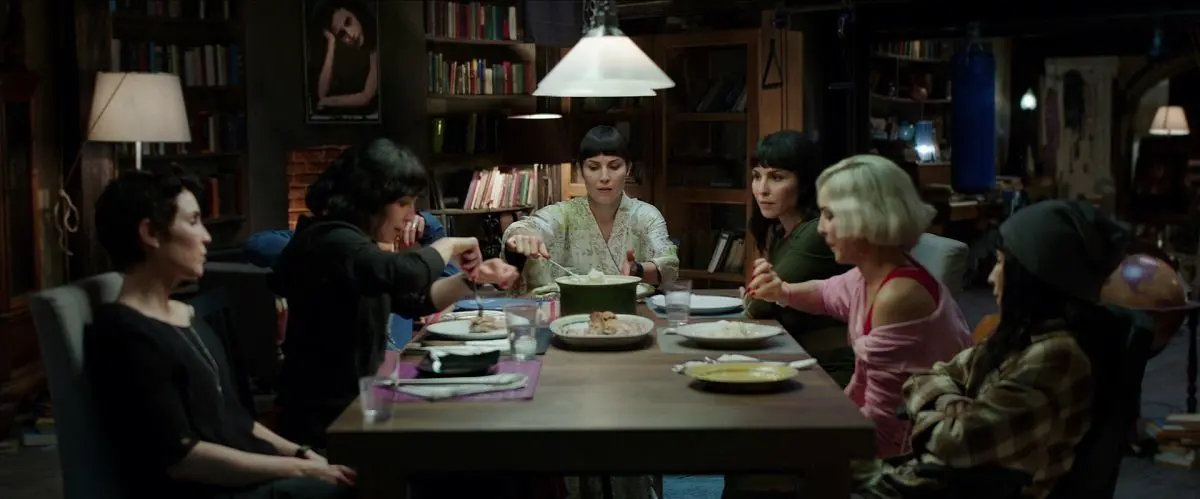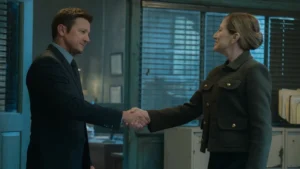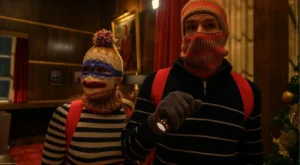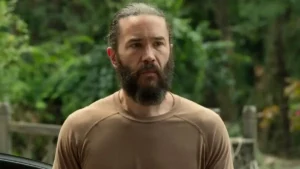I do not like Mondays. It is always a bit of a shock to get up so early and respond to colleagues after such a laid-back weekend. By Tuesday I am fine. I think the title What Happened To Monday is fitting. If I was ever going to choose a day where something bad happened, it would be that day.
This is a Netflix Original. A dystopian science fiction thriller that originally premiered at the Locarno Film Festival and stars familiar face Noomi Rapace.
What’s it about?
The premise is a distinctly interesting subject. It is 2073 and the planet is nearly beyond saving with food resource dwindling, there is an increase in natural disasters and the world appears to be over-populated. The story plants the idea that families producing too many children is the crux of the planet’s problem. Governmental departments have set up the CAB (Child Allocation Bureau) that enforces a policy that each family can only have one child, with the theory that in the short term it will deal with the planet’s issue.
Meanwhile, Terrence Settman (Willem Dafoe), has just learnt that his wife has died whilst giving birth to identical septulet sisters in an unknown hospital that is willing to keep it a secret. In a world set by the CAB policy the last thing you need is this, obviously.
The first act sets the stage; the seven sisters are trained into a robust cooperative routine to survive this dystopian nightmare in which they find themselves, in order to not get caught and cruelly executed. Conveniently, their father gives them names of each day of the week. That is the day they are allowed to go outside and become part of society. Their house is constructed in a way that allows the women to react to random strangers approaching the property if it ever became a problem. The concept is immediately absorbing which sets up the remainder of the feature.
So it’s good then?
There are a couple of elements that this movie gets right. The entire set-up presents an intriguing dystopian world accustomed to the norm that having one child is ideal to prevent disasters. The streets parade regimented CAB officials and checkpoints, something that you’d similarly see in other dystopian movies. If you are familiar with Never Let Me Go, you will understand that it hides you from the true horrors of a surviving disconnected world. What Happened To Monday wants you to understand the atrocities by showing forced compliance.
How so?
Well, to begin with, the first act is for your understanding about how these seven identical sisters work. The scenes are mostly situated in their home to understand the claustrophobic nature of their situation. One day a week is all they get. To gauge that understanding, the movie ensures you see very little of the outside world once you are shown various scenes of their father training them. For a while it becomes a vacuum. What finalises the first act is that the lead actress, Noomi Rapace, does impressively well to represent seven different characters. As for the rest of the film, it feels oddly different and the second act diverts into an entirely new genre.
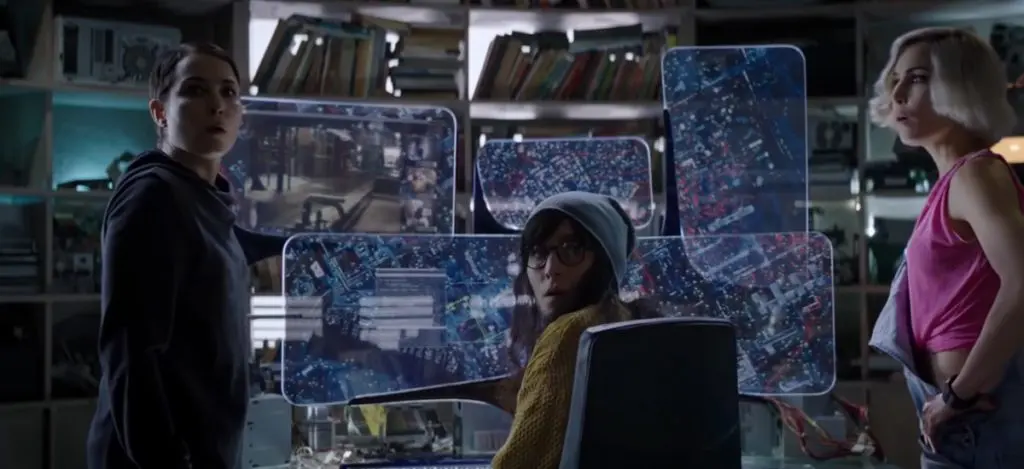
In a bad way?
Not necessarily, but then again this is a usual Netflix Original problem. In the second act the question is posed: what has happened to Monday? Why did she not return home? How come her tracking device is not working? You know this moment is finally going to come, but you wait with baited breath to see how the narrative is going to deal with the disappearance. Eventually you come to realise that this movie does not care about the characters and the concept of this dystopian world is secondary to the plot. The primary plot becomes an action movie, as each sister ventures out to investigate the whereabouts of Monday, which means violence and the inclusion of a lead CAB official trying to wipe them out. Of course, he looks movie villainous. I enjoyed it, but the movie sets itself up for something deeper than what it became. You sense that it is diverting. You never really grasp the personality of each sister despite effort from Noomi to perform each one. It provides thinly laid-on traits but nothing conclusive for an audience member to grab onto. In fact, I honestly cannot remember any of the key differences for e.g between Tuesday and Wednesday. Septulets was always going to be ambitious but I understand it was necessary with the seven day week / one day each concept.
Unfortunately, in reality, it loses that engagement that is importantly needed to care about the result of the story.
So it just becomes another action film then?
Yes. If you like action and violence then this will appeal to you. It is still a thriller, as the mystery surrounding Monday is relevant to the plot, but you can almost sense that the director enjoyed finding ways of attaching action components to the narrative. There is a sense that they wanted to tread on ground where the seven sisters became seven John Wicks. It is not at that level, of course, but considering you are served this ideological concept, you sometimes wish it turns into a gun-fu action genre. Personally, I preferred the narrative at the start and I desperately wanted it to delve into that more. The one child per family allocation is a policy that does not sound unrealistic worldwide as it happens in China at present, so in turn I had vested interest into how they were going to deal with that topic. You cannot ignore the fact that the movie absolves itself from becoming a deep thriller. It became a game of who can survive the longest. This is not me being grumpy. I am stating the obvious problem with it. It felt a little pointless putting a driven effort into the backstories in act one if the sole aim was going to be shoot and run. The movie does try to bring back the thriller aspect by act three, but by then it is too late. You want to see how this action-fuelled narrative is going to end.
Recommend?
Yes I would still watch it despite it selling itself as a dystopian thriller and becoming something else entirely. This is up there as one of the good Netflix Originals. I just have mixed feelings because of the dramatic change of tone but on the other hand I rather enjoyed the ride.

